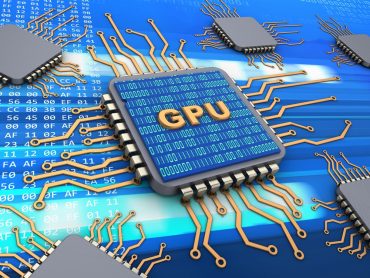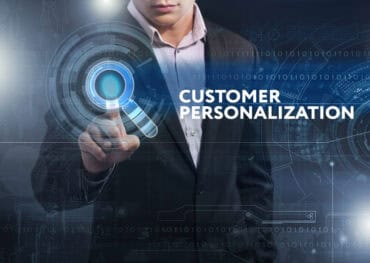
As AI adoption continues to flourish, we’re now entering the “AI Engineering Era,” which will enable business and IT leaders to work together to deploy repeatable patterns for AI solution success.
Artificial Intelligence (AI) holds tremendous promise in areas like hyper-personalization and process automation for organizations looking to improve efficiencies, customer engagement, and resource allocation, but the value derived from AI-powered applications (lower costs, better engagement, higher revenue) is proving challenging for many businesses. In many organizations, AI-powered application development schedules and roadmaps are taking longer, costing more, and delivering less than originally anticipated. With the widespread adoption of AI applications across all businesses, there now needs to be a framework designed to address unknown challenges and guide these projects to see the best possible return. Increasingly, businesses are embracing an approach dubbed AI engineering to help.
The good news is that enterprises are ready to scale AI. However, now enterprises must evolve from running AI projects out of small data science teams to expanded AI teams that consist of data scientists, data engineers, ML engineers, software development, testing, architecture, IT Ops, and, of course, business stakeholders. This dramatically expands the scope of AI projects and the need for frictionless collaboration among all the AI team members. Enterprises that have successful software development teams can bring that knowledge and expertise to AI projects. But AI does require specific tools and processes, and enterprises acquire an AI platform that serves multiple team roles and provides AI-specific tools and innovations.
According to Forrester, ”AI is now about applications. Enterprise applications are infused with nuggets of intelligence to automate decisions, identify patterns, enrich insights, and process automation. Thus, enterprise AI teams need an AI/ML platform that supports all the roles necessary to create AI applications, including data engineers, data scientists, ML engineers, application developers, ops pros, architects, and business analysts. The best AI/ML platforms support tools and collaboration across these multiple roles.”
See also: Enabling DevOps at the Junction of AIOps and Open Source
AI is a team sport, and AI engineering is a discipline for organizing this team, its tools, and its processes. MLOps, information technology (IT), software development, business leaders, subject matter experts, and even compliance, audit, and risk management must all work together to build an AI engineering competence that drives enterprise AI initiatives. AI engineering gives organizations a framework to address bottlenecks. The value of fully industrialized AI lies in the ability to rapidly develop, deploy, adapt and maintain AI models across different environments within the enterprise. According to Carnegie Mellon’s Software Engineering Institute, the three pillars of AI engineering that will help drive value from AI applications are robust and secure AI, scalable AI, and human-centered AI.
With the right AI-powered Platform, organizations will be empowered to build and operate AI applications at scale and drive trusted decisions intelligence across the enterprise. Putting the AI Engineering Workflow into the right AI Platform allows clients to maintain portability and control over their systems of record and engagement for AI-driven success and use cases. Robust and secure AI application development includes deployment, monitoring, maintenance, feedback, learning, and value capture and requires the efforts of numerous AI engineering team members. Scalable AI refers to building out AI applications across the enterprise for many use cases, getting many models and algorithms into production, and driving value. Scaling the AI infrastructure, data, and decisioning systems also requires low code platform capabilities and reusable assets. And human-centered AI refers to how AI systems are designed to align with humans, their behaviors, and their values – built by teams across the enterprise.
Gartner says, “A robust AI engineering strategy will facilitate the performance, scalability, interpretability, and reliability of AI models while delivering the full value of AI investments.”
An example of this AI framework coming to fruition is with one of the largest health insurance companies in the U.S., which has been building AI engineering competence over the last four years. This organization has the ability to develop numerous personalized customer insights as the output of models and decisioning systems, but they were challenged to get these models into production across disparate systems of record and systems of engagement, including call center software, and care management applications, client-facing portals, and applications. Realizing that value had been a challenge, this organization is now seeing value in a number of use cases, for example: driving improved service experience and cost savings from lower handling time and higher first call resolution and demonstrating faster AI-powered application development time (as much as 40% quicker) at a much lower cost. With the right people, processes, and tools across the enterprise developing an AI engineering competence, they are expanding their AI capabilities and delivering a much more robust AI roadmap.
Enterprises will benefit the most from AI applications that automate highly, repeatable decisions/processes, augment human intelligence, or enable new business models. Business leaders should walk through critical business processes with the AI team to look for opportunities to automate and/or augment. Adding AI to make existing business processes and/or customer engagement is the fastest way to AI business value.
The real differentiator for enterprise success with AI will lie in continually enhancing value through rapid AI change, as models learn and improve and as AI-powered applications are tuned to deliver more and more value. As AI adoption continues to flourish, we’re now entering the “AI Engineering Era,” which will enable business and IT leaders to work together to deploy repeatable patterns for AI solution success. An AI Engineering approach will help organizations build sustained value with AI faster than simply focusing on MLOps alone, making it possible to readily deploy models into production in a structured, repeatable factory-model framework to realize significant value.





























